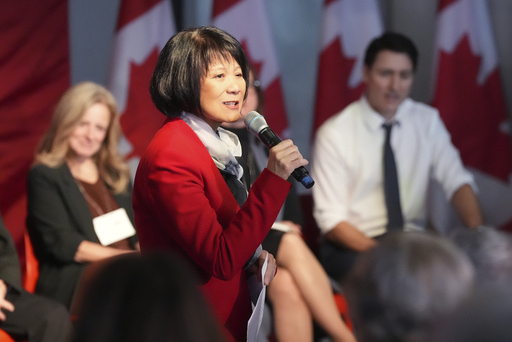VANCOUVER, British Columbia — Prime Minister Justin Trudeau emphasized the need for Canada to approach the situation with U.S. President Donald Trump’s potential tariffs on Canadian imports with a tactical and strategic mindset. This statement was made during a summit in Toronto focused on the economic ties between Canada and the U.S., which brought together trade, business, and labor specialists to discuss these pressing trade issues.
Trudeau remarked that it is essential for Canada to collaborate with the United States to avert the imposition of tariffs. He also highlighted the importance of removing domestic trade barriers and fostering international trade connections.
At the summit, Trudeau characterized this period as a significant moment in Canada’s history, stating, “This is a moment. This is a time in our country’s history that really matters.” He mentioned that Trump’s comment about potentially making Canada the 51st state is a genuine consideration.
He elaborated that Trump might believe that integrating Canada into the U.S. could be a simpler solution. However, his statement was cut off during the address, according to reported accounts by public broadcasters.
Recently, Trump had agreed to a 30-day reprieve on his threats to impose a 25% tariff on imports from Canada and Mexico, which includes an additional 10% levy on Canadian oil, natural gas, and electricity. Initially, these tariffs were announced in connection with Trump’s desire for greater cooperation to combat illegal immigration and fentanyl trafficking, but he also indicated potential tariff use as a strategy to enhance domestic manufacturing and increase government revenue.
Trudeau pointed out that Canada could use this 30-day period effectively to demonstrate its commitment to bolstering border security. The Canadian government has introduced a $1.3 billion (approximately $900 million) initiative aimed at enhancing border security through assets such as drones, helicopters, and additional border personnel, along with forming a collaborative task force.
Trudeau also announced plans to designate a dedicated fentanyl czar, who will act as the main point of contact between Canadian and U.S. officials, highlighting that a minuscule fraction of fentanyl and undocumented crossings into the U.S. originate from Canada. He stressed the need for a thorough approach in advocating to U.S. officials that Canada bears only a minor responsibility for the fentanyl crisis, while passionately acknowledging the tragedy’s impact on Canadian communities.
Additionally, Trudeau asserted the need for Canada to brace itself in case Trump moves forward with the tariffs after the 30-day pause. “We need to be ready to respond robustly,” he stated, emphasizing the necessity of supporting Canadians during challenging times if tariffs are implemented.
Canada had initially prepared to retaliate against U.S. tariffs by imposing their own 25% tariffs on $155 billion (around $109 billion) worth of American goods. Trudeau called for an authentic free trade environment within Canada and highlighted the goal of strengthening its trade ties with other nations.
Candace Laing, the president and CEO of the Canadian Chamber of Commerce, expressed satisfaction that the summit specifically concentrated on aspects like domestic trade, trade diversification, and strategies to counter U.S. tariffs. “It’s clear that we can’t just tinker around the edges with incremental steps right now,” she remarked. “We’ve got to be bold so that businesses and communities can pivot to be more resilient and less reliant on what happens in the U.S.,” Laing added.
This summit was organized by the newly established advisory council on Canada-U.S. relations and featured a diverse group of participants, including business leaders, labor representatives, Indigenous leaders, and public policy experts; several federal cabinet ministers were also in attendance.
Dennis Darby, president and CEO of Canadian Manufacturers and Exporters, expressed his intention to communicate to the government that should tariffs be enacted, businesses and their employees will require support in the form of direct government assistance, tax relief, or wage subsidies.




